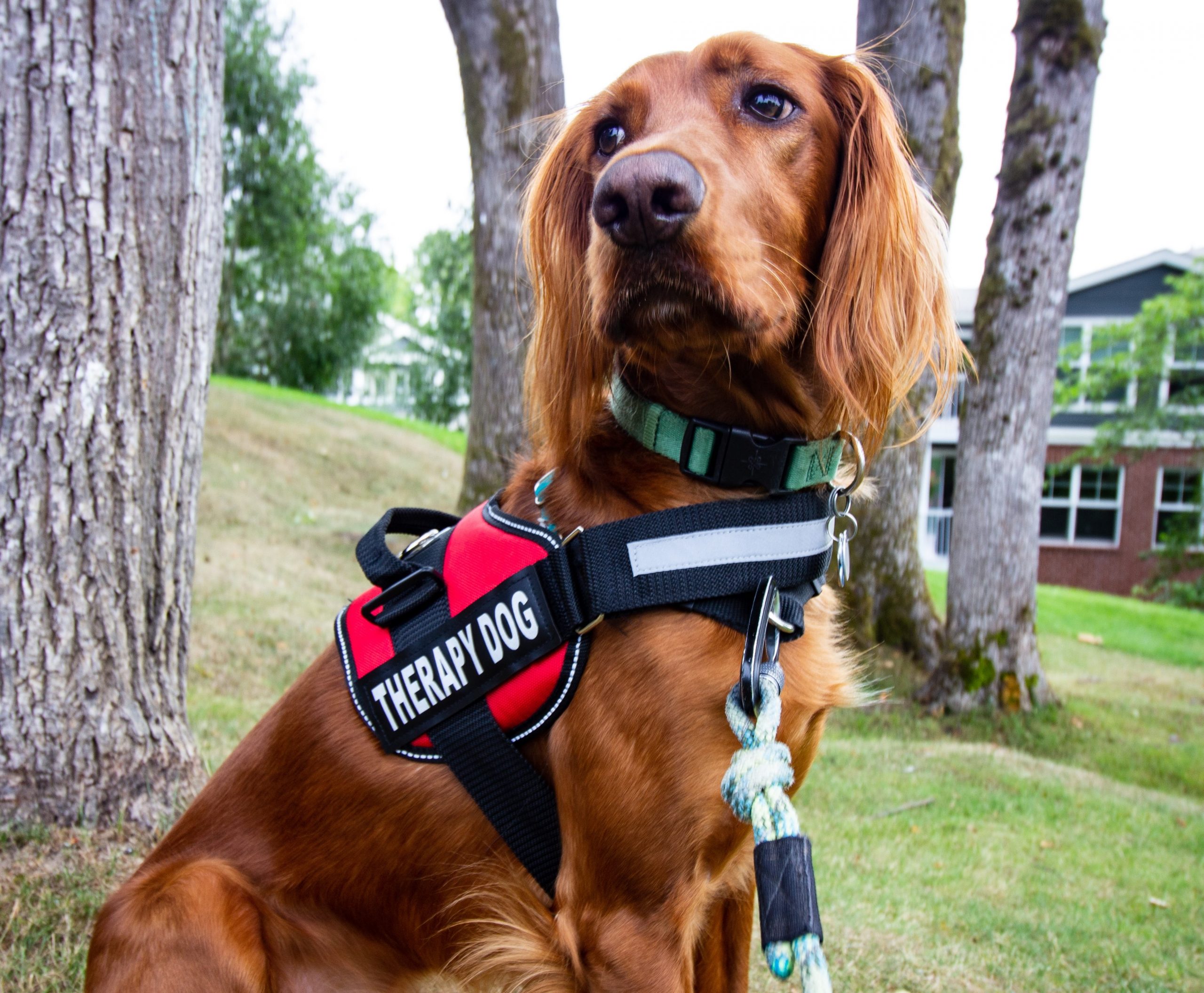Cat DNA Tests: What You Need to Know
Human DNA tests offer a wealth of information: your mix of ethnicities and regions, family trees, and even health risks and physical traits.
As DIY DNA testing services like Ancestry.com and 23andMe become increasingly popular, many cat lovers are wondering if they can test their cats’ DNA for breed ancestry too.
Cat DNA tests now make it possible for virtually anyone to find out more about their feline friends’ genetic history.
But how do cat DNA tests work? What information do they offer? How much are cat DNA tests?
We investigated these questions and everything else you need to know about cat DNA tests.
What are cat DNA tests?
Cat breeders and owners have been making educated guesses about a cat’s heritage based on shape, size, coat length and color, eye color, voice, temperament, activity level, etc., for centuries.
Cat DNA tests aim to solve the mystery once and for all.
By collecting a sample of your cat’s saliva, testing labs determine genetic markers responsible for your cat’s physical characteristics and breed heritage.
Important Benefits of Cat DNA Tests
Getting your cat’s DNA tested isn’t just for fun – it uncovers critical insights about your cat’s health and future:
Cat DNA Tests & Cat Health
DNA tests for cats can determine whether your kitty is predisposed for any of a wide range of inherited disorders, such as:
- Polycystic Kidney Disease (PKD): common in Himalayan, Persian, and related breeds
- Hypertrophic Cardiomyopathy (HCM): often seen in Ragdolls and Maine Coons
- Manx Syndrome: this genetic mutation is linked to spinal cord defects like spina bifida in Manx cats and related breeds
- Burmese Head Effect: a unique mutation in Burmese and related breeds can cause severe facial abnormalities, incomplete skull development, and even death if a kitten’s sire and dam both carry the defective gene
- Progressive Retinal Atrophy (PRA): common among many cats, but especially prevalent in breeds like the Somali, Abyssinian, and Ocicat
Note that cat DNA tests do NOT diagnose feline diseases or predict when an illness may occur.
They only reveal whether a cat has the genetic markers for certain conditions.
Still, this is incredibly valuable information for both breeders and pet owners.
For example, a breeder can avoid breeding two cats with the same disorder. An owner can be prepared for health costs and make adjustments to their cat’s care.
DNA tests are not meant to replace annual exams, vaccinations, and appropriate preventative care – but they provide a great roadmap for a cat’s future medical needs.
Cat DNA Tests & Breed Identification
Interestingly, most cat DNA test kits won’t be able to tell you a conclusive answer about your cat’s breed.
The reason? Unlike dogs, cats have not been selectively bred for specific tasks or purposes over the years. Many “pure-bred” cats were bred according to random appearance rather than by pedigree.
In addition, most cat breeds we know today are less than 100 years old. Muddling feline ancestry further are the multiple wild ancestors of the modern-day domestic cat, including servals, ocelots, bobcats, and more.
There’s simply not enough genetic diversity available for breed identification in cats compared to dogs.
In other words, cat DNA tests may tell you a bit about your kitty’s heritage, but they can’t pinpoint a definite breed lineage with 100% accuracy.
Note that the keyword here is accuracy: while cat DNA tests can’t identify an exact breed, they can provide an estimation of your kitty’s lineage.
Cat DNA Tests and Cat Behavior
Ever wondered why your cat is so “wild,” when her parents were so mellow? Or why is your cat calmer and cuddlier than any cat you’ve ever encountered?
Genetics plays a large role. That’s why Persians, Ragamuffins, and British Shorthairs are known as docile breeds, and why Bengals, Devon Rex cats, and Munchkins have a playful reputation.
Like we said above, cat DNA tests can only give you a rough profile of your cat’s breed or mix. But this is usually enough to give you a better idea of why your cat is the way they are.
Tip: Once you get a result of their genetic matches, research the traits of your cat’s predicted breeds. You may discover new things about your kitty and even discover new ways to interact!
How do cat DNA tests work?
You can test your cat’s DNA at home in just a few minutes. Here’s what to do:
1. Get a cat DNA testing kit.
You can buy a cat DNA test kit online from Amazon, Chewy, or directly from cat DNA testing companies. You can also check your local pet stores.
2. Create an account and register the kit.
Read the instructions carefully when you receive the kit.
Most companies will ask you to register on their website for free. This will let you access your results, purchase additional kits, store your cat’s profile, get customer support, and other services like consulting with their affiliated vets to help you understand the DNA test results.
3. Collect a sample for the cat DNA test.
Collection instructions may vary slightly among brands and companies. But most will request you to collect the cheek cells from inside your cat’s mouth.
Some kits include specific instructions with swabs or wipes. Others will require you to collect hair from your cat’s brush or collar.
Follow the steps carefully to avoid contamination of the sample.
4. Mail the sample.
After collecting a sample, mail the kit back to the company or the corresponding laboratory for analysis. Most companies will give you tracking information and a general time frame to expect your results.
Note the company’s return policy. Some companies offer partial or full refunds if you do not receive any results within a certain time frame.
5. Get your cat’s DNA test results.
After the company processes your samples, they will send you an email with your cat’s complete DNA profile. Depending on the kit you buy, this can include information like a comprehensive health report, breed report, and accompanying analysis.
6. Consult with a vet.
Not sure how to interpret your kitty’s results? Most companies will include a list of veterinary professionals who will talk you through the data and answer your questions. You can also do your own research to find a vet you trust.
Note that not all vets are familiar with genetic testing for cats. But if you find one who is experienced, they may be able to help you better understand your cat’s genetic line.
The Best Cat DNA Tests in 2022
The tests below are not rated in any particular order. Each cat DNA test provides a different type of information, and you should review all of them to find the test that best fits your needs.
There are other cat DNA testing companies out there besides these three, so do your research, read reviews, and think about your needs carefully before you buy.
With that said, here’s a look at each one:
Basepaws
Widely considered as one of the top companies for cat DNA testing, Basepaws offers several types of genetic tests:
- Breed + Health DNA Test
- Dental Test
- Whole Genome Test
The Whole Genome Test from Basepaws is particularly robust. The company claims it can determine 10, 000x more data than other brands in the market.
Basepaws also work with veterinary professionals to advance their pet biotechnology platform.
You can order a cat DNA test kit directly from their site, with the option to pay in installments.
Wisdom Panel
Wisdom Panel is another trusted company for feline genetic testing. They claim to have the world’s largest breed database for dogs and cats, offer a genetic relative match, and promise a >98% accuracy on tests.
They offer basic and premium cat DNA tests. The basic test screens for breed detection, medical complications, and comprehensive traits test. The premium test screens for more genetic risks, ancestry, and includes a vet consult where you can discuss the findings.
Wisdom Panel also offers cat DNA test kits designed especially for breeders.
You can order directly from Wisdom Panel online or from major pet retailers like Chewy and PetSmart.
Orivet
The Orivet Cat DNA Health Screen & Life Plan test focuses on screening for genetic diseases. You can learn your cat’s blood type, risk analysis, and other health information to help you create a wellness plan.
The Orivet test screens for many disorders, including heart disease, kidney failure, liver disease, hypertension, and more.
While cheaper than other brands than Basepaws, Orivet DNA tests are not as comprehensive when it comes to breed and ancestry information. So if that’s what you’re looking for, you may want to consider another company.
You can order Orivet cat DNA tests directly through their website or online platforms like Amazon.
Should you test your cat’s DNA?
For cat breeders
If you’re a cat breeder, it’s a good idea to have your cats’ DNA tested. You can use this information to carefully select which cats you mate together—and improve the health of future generations.
Many buyers have also started demanding the cat DNA test as a prerequisite before buying a cat. Because purebred cats can cost thousands of dollars or more, being able to provide a genetic profile provides you an edge in the competitive cat breeding industry.
In fact, genetic testing is now a way to separate reputable, honest breeders from backyard operators and other unscrupulous breeders.
Those who provide proof of genetic testing show that they’re serious about the health and wellness of their cats, and their customers can be assured that they’re getting high-quality, healthy cats.
For pet owners
Cat breeders aren’t the only ones who can benefit from cat DNA testing.
More and more regular cat owners are also getting their cats tested for fun, curiosity, to ensure their cats are healthy, and to find out more about their breed – or all of these at the same time.
It’s a wonderful way to learn more about your feline friend and give you peace of mind knowing all about your cat’s health and “family” heritage.
Are cat DNA tests worth it?
Ultimately, it depends on what you want to get out of it. If you’re simply wondering if your cat’s thick, long coat comes from Maine Coon or Norwegian Forest Cat genes but you’re not that interested, you may not want to spend anywhere from $50 to $200+ finding out.
However, if you’re curious to know more about your cat’s lineage and hereditary disorders—especially if you take breeding or showing your cats seriously — then it’s a terrific investment.
Cat DNA tests allow you to learn so much more than just what breed your cat belongs to – and that information can help provide a better life for your feline friend and help ensure their health and wellness.
Frequently Asked Questions (FAQs):
Are cat DNA tests accurate?
Genetics is not an exact science, whether we’re talking about human or cat DNA. So don’t expect 100% accuracy from any cat DNA test.
Still, companies like Wisdom Panel provide a high degree of accuracy up to >98% due to their massive databases. In exchange, they charge more for their DNA testing services.
If you’re willing to spend more, then these companies are an excellent choice.
Which cat DNA test is best?
It depends on your budget and what you’re looking for in a cat DNA test.
If budget is not an issue and you want comprehensive data, try Basepaws or Wisdom Panel. These companies provide a high level of accuracy and have the largest genealogical database for cat breeds in the world.
Their different products include breed analysis, genetic disease analysis, ancestry analysis, etc., so you have plenty of options to choose from.
If you’re only after certain information, such as disease markers, then a relatively cheap cat DNA test like Orivet is perfectly fine.
To compare prices and features, check out product listings online on Amazon, Chewy, Petco, PetSmart, and even retailers like Walmart and Target.
How much do cat DNA tests cost?
You can buy one for as little as $20 or as high as $499.
The more complex and detailed analysis you want, the more expensive it will be.
How do I check my cat’s DNA?
Buy an at-home cat DNA testing kit first. You’ll receive a sample collection kit, which includes a swab. Gently brush the inside of your cat’s mouth to collect saliva, then close it back up and send the sample to the company who’ll examine it.
| My Dog is a Robot covers the pet technology industry. Keep up with the latest news about products, services and companies in the pet tech space. | Contact Us |




